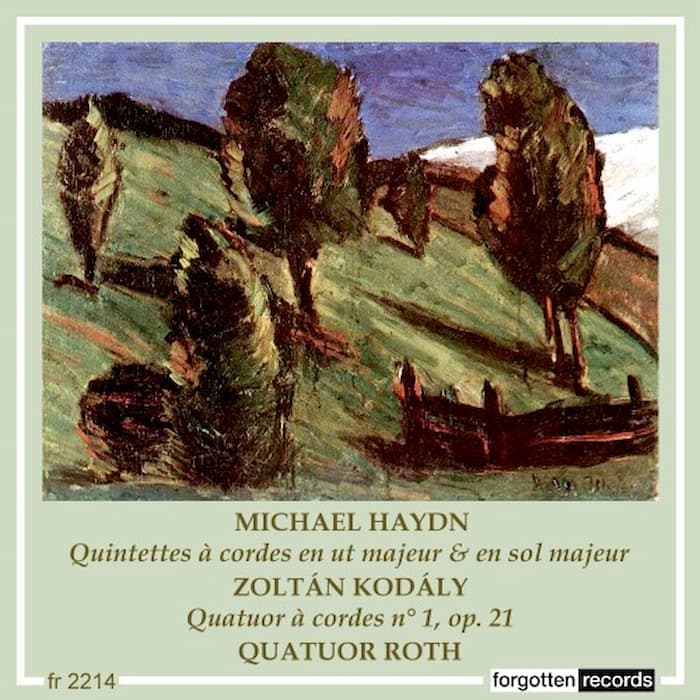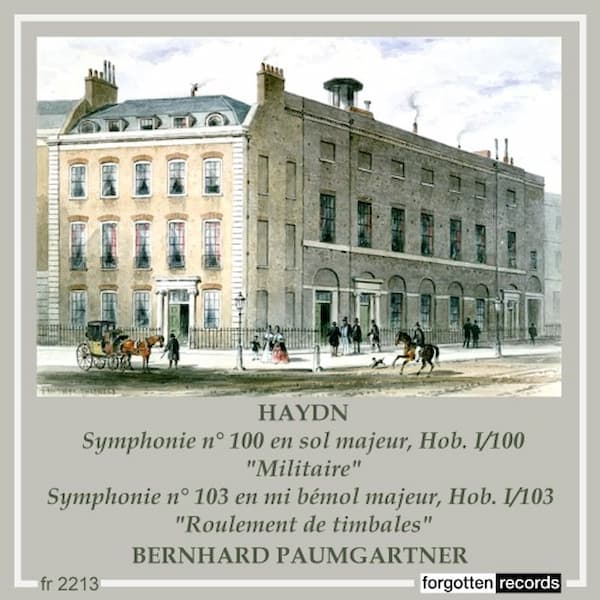In his opera Tannhäuser, Richard Wagner (1813–1883) combined two German legends, that of the German Minnesänger and poet Tannhäuser, and the story of the Wartburg Song Contest. Although the contest is the surface, the story is really about the battle between sacred and profane love and Tannhäuser’s battle with himself choosing love from the sacred Elisabeth and the profane Venus.
Tannhäuser was one of Wagner’s middle-period operas and had its premiere in Dresden in 1845. Its story about redemption through love was one of Wagner’s most common themes in his operas.
The opera opens in the Venusberg, where the goddess of Love holds sway. Tannhäuser has been at her court, and after a ballet orgy by the Bacchantes and Sirens, his desires are satiated, and he decides to leave. When he decides that his freedom and salvation rest in the Virgin Mary, Venus and her court vanish.
Tannhäuser finds himself outside a familiar city (Eisenach) and is accosted, mid-prayer, by his minnesinger friends, who ask where he’s been. He meets Elisabeth, who is joyful at his return. The contest of the minnesingers is set in Wartburg Castle.
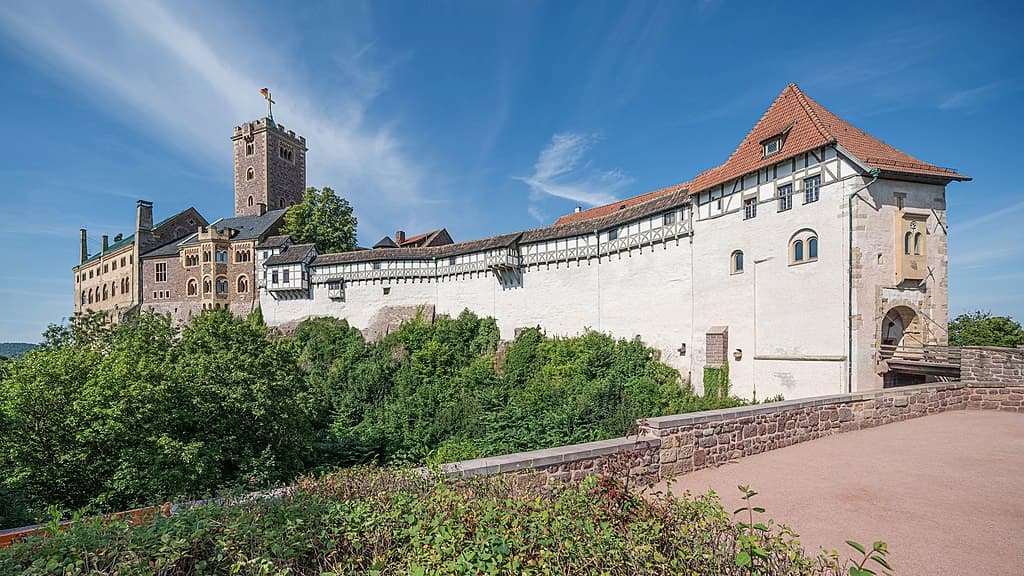
The Wartburg in Eisenach
The contest commences, and when Tannhäuser sings a song in praise of Venus, the contest is broken up as everyone flees this evidence that Tannhäuser has been in the Venusburg, a place of profane love.
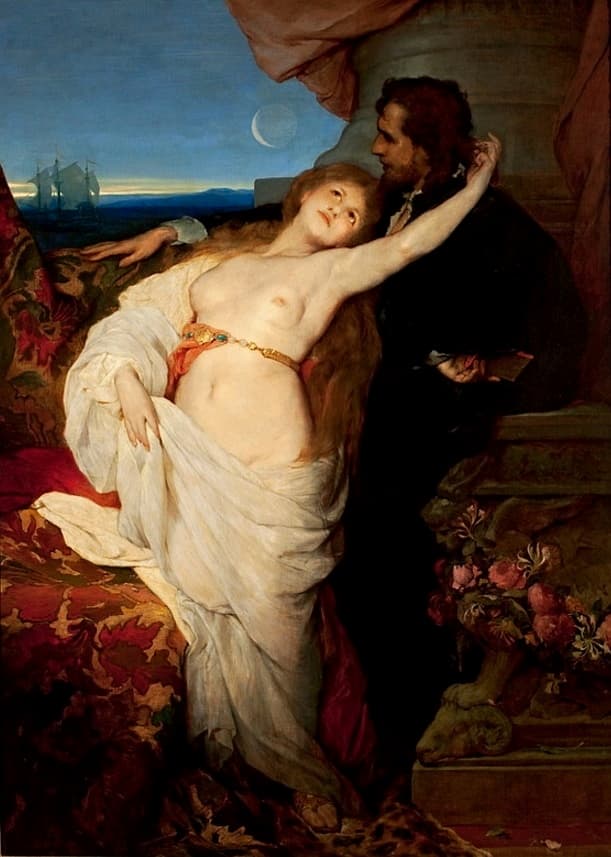
Gabriel von Max: Tannhäuser, ca 1878 (Warsaw: National Museum)
Tannhäuser, exiled from the city, goes on pilgrimage to Rome. Instead of receiving absolution at his confession, he is damned by the pope. He returns to the Wartburg so he can return to Venus, as sacred love is now closed to him. Elisabeth’s funeral bier passes and Tannhäuser stops his call to Venus. Her love has redeemed him, as evidenced by his pilgrim’s staff bearing leaves, and he dies in grace.
The opera premiered at Bayreuth in 1891, 8 years after the composer’s death, under the supervision of his wife, Cosima.
This track is from a scene in Act II, where the guests arrive at the Minnesinger Hall in the Wartburg for the song contest. Elisabeth and her father, the Landgrave, watch the procession of the invitees.
Richard Wagner: Tannhäuser – Arrival of the Guests at Wartburg
This 1949 recording was made with George Sebastian conducting the Orchestre Symphonique RIAS, Berlin, for Radio Berlin.
The RIAS Symphonie-Orchester Berlin was founded in West Berlin in 1936 and was affiliated with the American RIAS (Radio the American Sector) Berlin radio station. After Germany’s unification, the orchestra became the Deutsches Symphonie-Orchester Berlin.
Georges Sébastian (1903–1989) was a French conductor born in Hungary known for his command of Wagner’s music and the post-Romantic composers such as Bruckner, Mahler, and Richard Strauss. He studied piano and violin in Budapest before working with Zoltán Kodály and Béla Bartók to learn composition. His first position in 1921 was as répétiteur at the Munich State Opera, working with Bruno Walter; he was appointed assistant conductor in 1922.
For the 1923–24 season, he was an assistant conductor at the Metropolitan Opera in New York and, on his return to Germany, conducted at the Hamburg and Leipzig opera houses. From 1927 through 1930, he was the first conductor at the Berlin State Opera. From 1931 to 1937, he was in Moscow as musical director of the Moscow Radio and Philharmonic Orchestra.
In 1938, he returned to the US and spent the war there, where he was conductor at the San Francisco Opera, musical director for CBS radio, and musical director of the Scranton (PA) Philharmonic Orchestra.
Returning to Europe, he moved to France, where he conducted at the Palais Garnier, notably conducting the debuts of Maria Callas (1958) and Renata Tebaldi (1959). His greatest activity was conducting on French radio and recording complete operas: Thaïs (1946), Lakmé (1952), and Mignon (1953). Pirate recordings of his Elektra (1966) and Salome (1967) have been found as well.
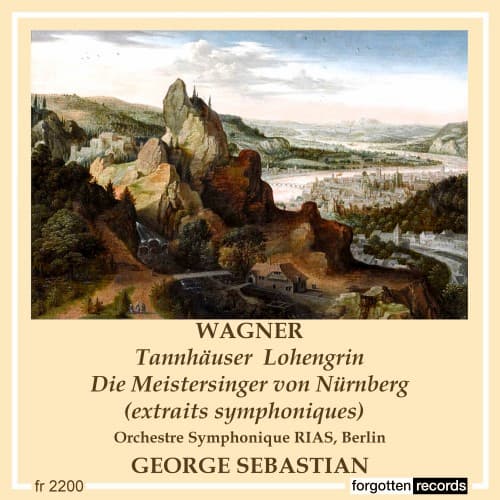
Performed by
George Sebastian
Orchestre Symphonique RIAS, Berlin
Recorded in 1949
Official Website
For more of the best in classical music, sign up for our E-Newsletter

